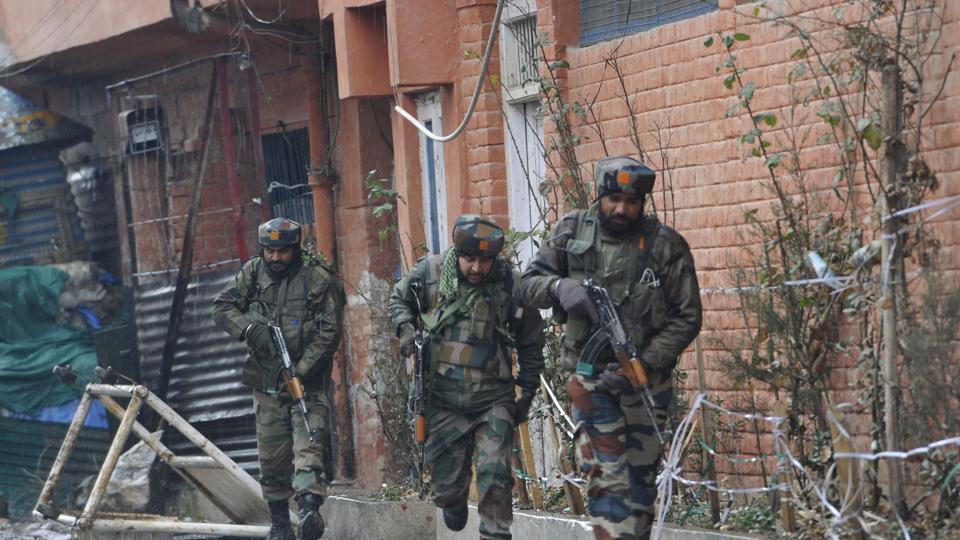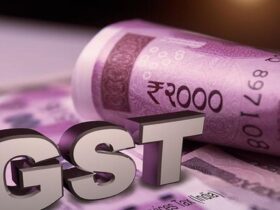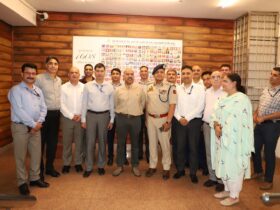Having been bestowed by Nature with the most favorable agro-climatic condition and the fertile soils for temperate fruits, the beautiful mountains, gardens, Dal-lake etc., and the wonderful art in the fingers and minds of its habitants, the Kashmir has flourished trade of horticulture, tourism and handicrafts. These were the only established activities of commerce in valley and served as back bone of our economy. However, during the dark era of nineties the two of the three traditional sectors of our economy got severe setback and it was only horticulture activity that sustained our economy even under most constrained state of turmoil.
The state of Jammu and Kashmir owing to its specific advantage has made commendable progress in area expansion under fruits and their productivity. In the past 40 years, area under apple has increased more than three-fold, from 0.47 lakh ha to 1.50 lakh ha and its production has increased five-fold to reach 20.52 lakh tonnes in 2015-11. Since 1970s, the growth of apple sector has shown three distinct trends. Area, production and productivity of apple grew at a significantly higher rate during 1975-86 (period I), but slackened during 1987- 98 (period II). In the recent decade (1999-2010), though the area and production of apple have resumed the growing trend, but the productivity growth has been quite low. Cultivation of apple is a cost-intensive venture and therefore resource-poor farmers cannot manage a large area under this crop.
Despite it, a major proportion of total area cropped (about 65%) is under apple cultivation in Baramulla and Shopian districts. The cost of variable inputs for managing one kanal of an average-age bearing orchard has been estimated at Rs. 5000/- in which the cost on pesticides accounted for around 54 per cent. Farmers use pesticides frequently and spray their crop more than eight-times to protect their fruit from various fungal and insect damages. The farmers carefully follow the spray schedule issued by the SKUAST-Kashmir and use only chemicals recommended by the authorities. However, more often than not, farmers find the recommended pesticides ineffective, not able to protect the fruit and the trees. This is largely because of the substandard quality of the chemicals. The pesticide delivery system in the state is quite complex due to the presence of a number of multinational companies (MNCs), national companies (NCs) and market functionaries like distributors, sub-distributors, dealers and unlicensed traders. There is an extensive network of pesticide companies and their authorized functionaries that popularize and sell agrochemicals in the rural areas. In the state, there are more than 22 big pesticide marketing companies – 7 multinational (MNCs) and 15 national/generic companies (NCs). Each of these companies has authorized distributors/ dealers that facilitate promotion/sale of pesticides through a network of unorganized market functionaries. Besides, several unlicensed dealers and retailers who are not completely aware about the toxicity of pesticides, also sell pesticides primarily to earn big margins. The unorganized system of pesticide trade in the state is expected to result in unstable prices, availability of sub-standard/spurious chemicals and distress sale of farmers’ produce. This scenario necessitates the analysis of entire pesticide delivery system is Jammu and Kashmir.
The total sale of pesticides by weight is more than 20,000 MT. The shares of companies by status indicated that MNCs and NCs accounted for 22.3 per cent and 60.7 per cent of the total sale of pesticides, respectively. Pesticide market in the state (in terms of value) is estimated at around 500 million. The calculated shares of the MNCs and NCs in value terms of pesticides were 33.6 per cent and 52.3 per cent, respectively. Difference between the shares of MNCs in terms of weight and value was due to higher prices of their products as compared to prices offered by the local companies. The entry of a number of local companies in the pesticide market is expected to increase the share of national companies. Among different MNCs operating in the pesticide market in the state, Bayer and Syngenta enjoy a higher share. Among NCs, Fungicide India Ltd (FIL) owned by senior PDP leader and former R&B Minister Altaf Bukhari and Rallis India Ltd. have major shares in both quantity and value of pesticides marketed. A good number of other small companies also market pesticides, accounting for over 17 per cent of the total pesticides sold in the state. The product profile has a bearing on the share of different companies in the pesticide market. It is where the exploiters took the centre stage. Be it supply of chemical fertilizers, pesticides- insecticides, weedicides and fungicides or marketing the deceptive trade practice like any other trade has plagued the entire horticulture sector.
Now, for the last more than three decades an established cartel of spurious pesticide suppliers and substandard fertilizer dealers are clandestinely robbing the horticulture producers of their hard earned earnings. Clandestinely! Because this exploitation and fleecing goes on unabated without knowledge of the farmer or any other member directly associated with the trade. It all starts from the multinational pesticide companies and their national associates, through the conduit of prescribing authorities and agencies along with quality control monitoring and certifying authorities and local distributor the murky trade ends at the doorstep of deprived. Interestingly, even most of the retailers are unaware of spurious chemicals they deal in, not to talk of innocent and gullible farmers.
The horticulture industry is ruining alarmingly, because of the unchecked and free flow of the spurious pesticide industry in the valley. Former Minister for Agriculture, Gh. Hassan Mir, replying on the Motion moved by the then legislator Javid Ahmad Dar during 2014 Assembly Session to discuss the measures taken for stop of sale, purchase and usage of chemicals in the orchards had admitted that the horticulture industry received about 10% losses because of the use of spurious pesticides. Terming the industry as back bone of the state economy, the Minister had said that large chunk of population is directly or indirectly associated with it. He had informed the August House that a committee headed by Vice Chancellor SKUAST-Kashmir has been constituted to find out the causes of damage to the horticulture industry.
The committee in its reports had stated that pesticides could not prove effective due to heavy rains from March to June, a fact hard to digest by the intelligent farming community, who used to spray the chemicals in their orchards after carefully following the forecast warnings of the Meteorological Department. Interestingly, during the same year the then Director Agriculture Kashmir under the influence of Pesticide companies and in connivance with an enforcement official namely Mohammad Yaseen Masoodi In-charge Deputy Director Enforcement, a close relative of the then Agriculture Minister, in brazen violation of the Insecticides Act, ordered re-testing of around 26 pesticide samples which had been found spurious in the first test by the three officers.
No action was taken against the companies who pesticide samples were found spurious upon testing, neither farmers were made aware about not to use these spurious chemicals. Shri Masoodi is still enjoying Deputy Director Enforcement’s position and is hand in glove with various pesticide companies. He dictates the pesticide dealers and retailers for carrying out the business of some selected manufacturers. Besides, sale stop notices are issued to dealers directing them not to sell the products of reputed companies on one pretext or orther, with a motive of encouraging the sale of the pesticide products of the companies which are hand in glove with him.



















Leave a Reply